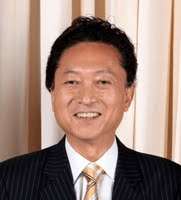Japanese Prime Minister Yukio Hatoyama and his Democratic Party of Japan rode into power in the fall of last year on the promise of tax cuts and a fresh approach to foreign policy. After a spate of crises less than a year after taking office, Hatoyama's approval rating plummeted. Last week, a small leftist party allied with the DPJ split from the ruling coalition. On Tuesday, Hatoyama announced he would step down as prime minister.
A financial scandal involving DPJ stalwarts partially explains Hatoyama's fall from grace. Equally vexing for the 63-year-old from one of Japan's leading political families was what one analyst calls Hatoyama's "miscalculation" regarding the six-decade military alliance between the United States and Japan. In his election campaign, Hatoyama had vowed to revisit a 2006 deal allowing 4,000 U.S. Marines to remain on the crowded Japanese island of Okinawa, which in World War II was the site of a bloody battle between invading Marines and Japanese defenders.
After strongly hinting during the fall election that he would abandon the 2006 deal and evict the Marines, last week Hatoyama announced that he would in the end opt for the existing agreement. Under the terms agreed to four years ago, the Marines were to eventually relocate their airstrip to a less-populated part of the island prefecture. But many Okinawans oppose any Marine presence on the island.

